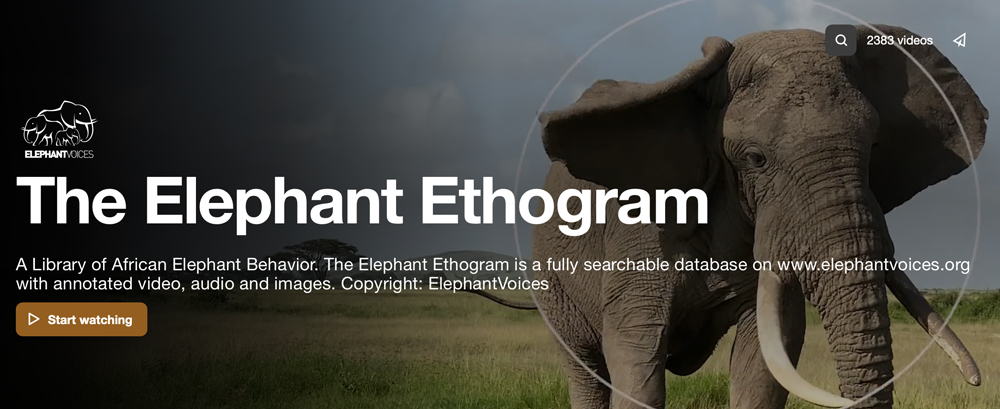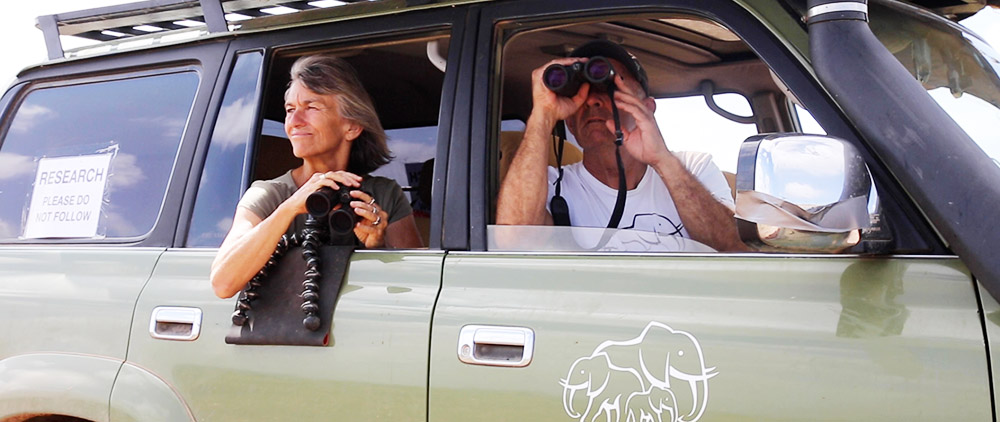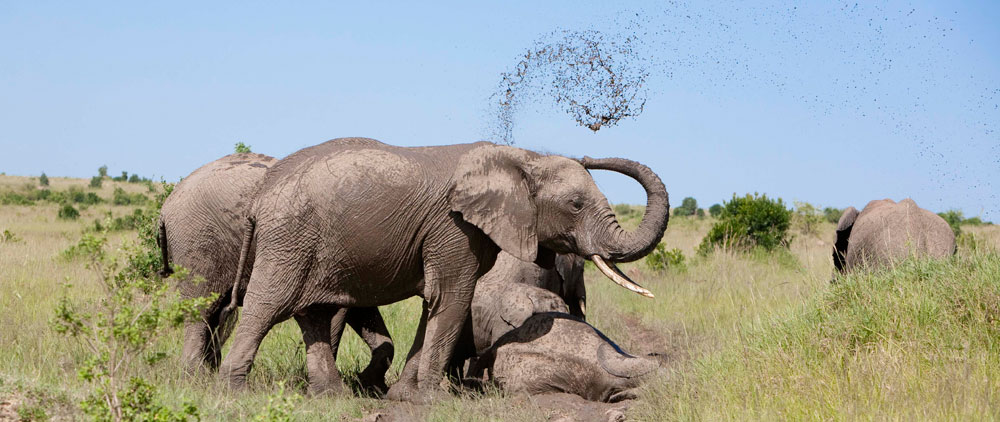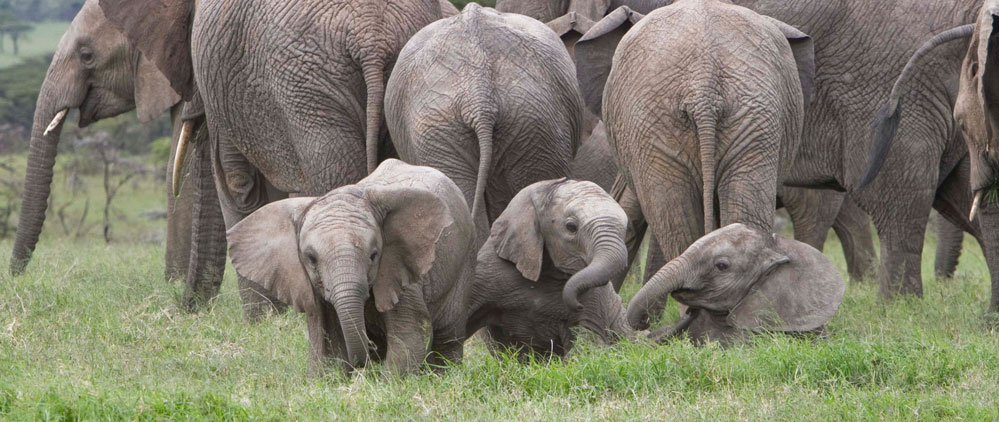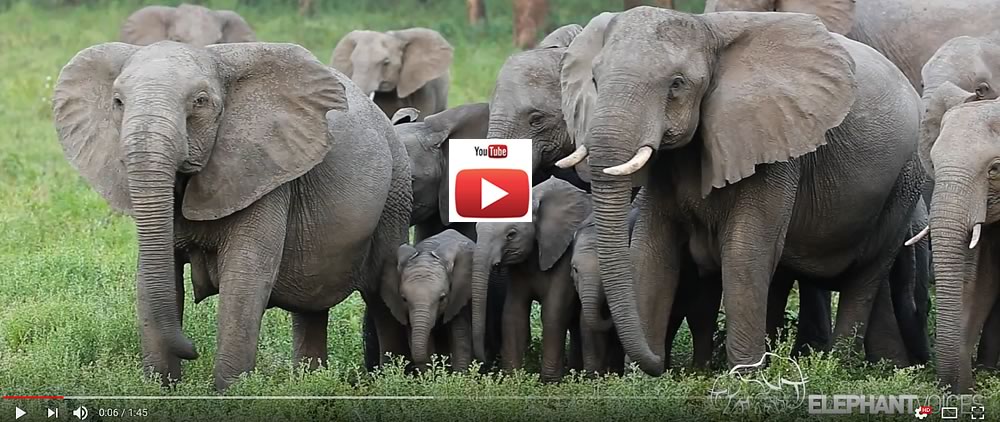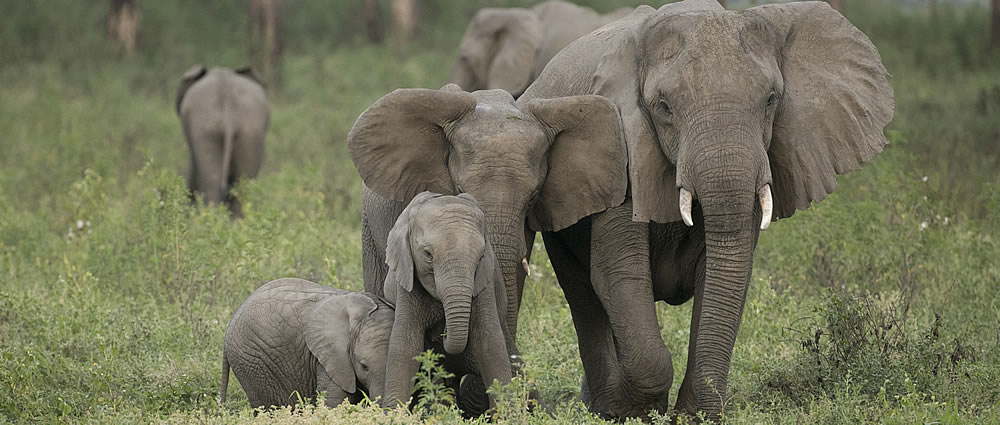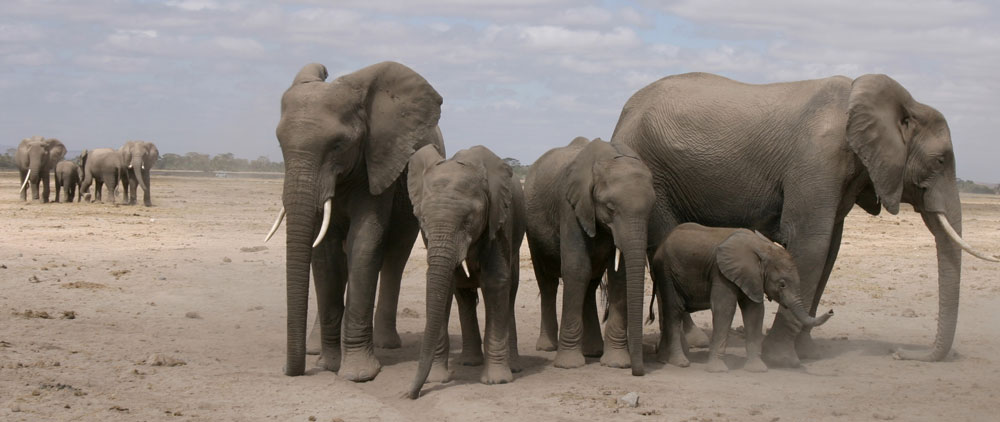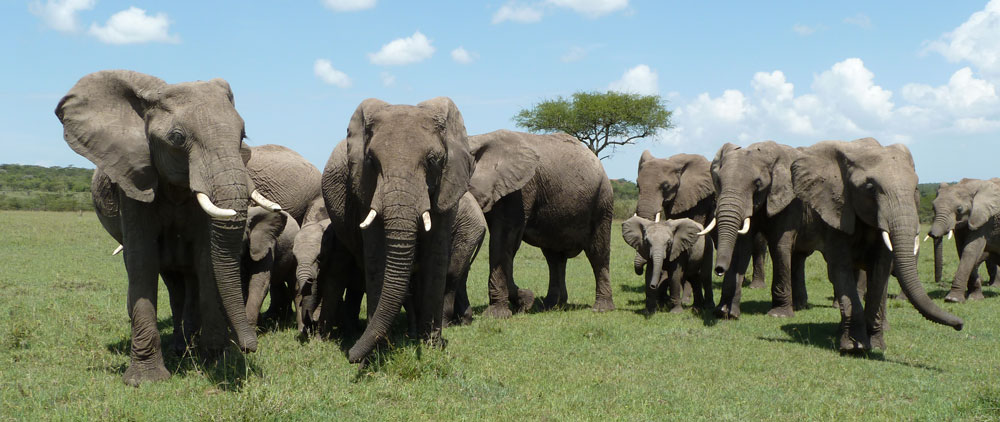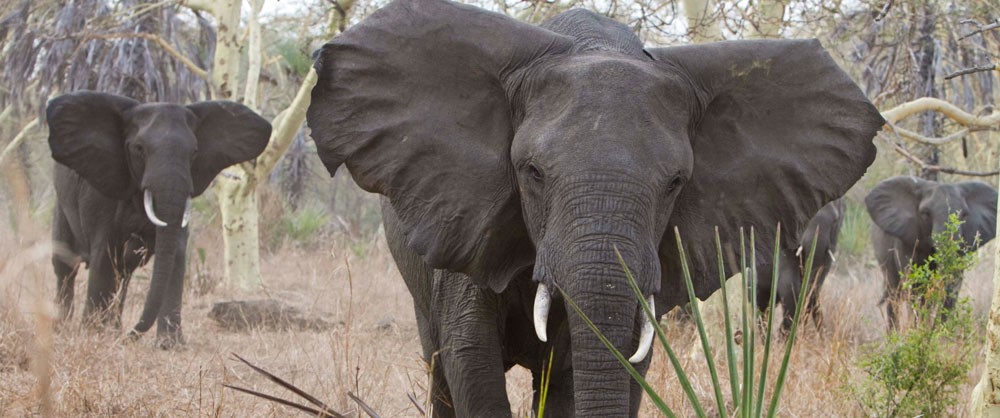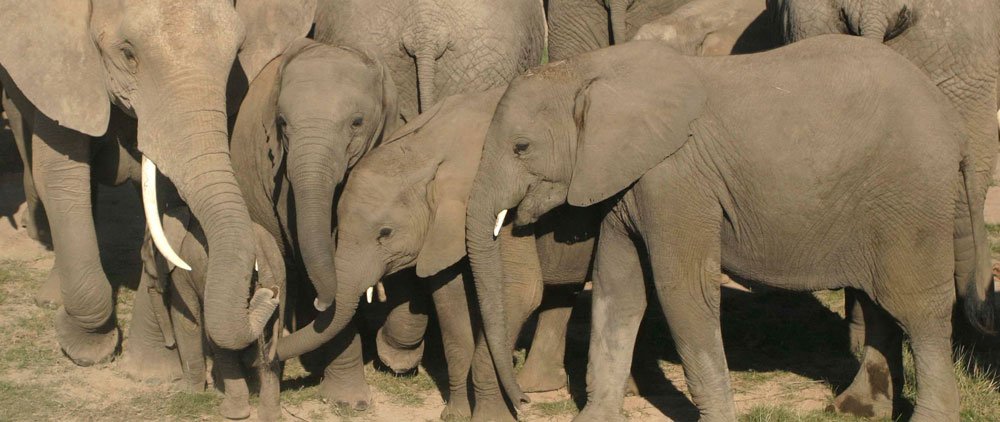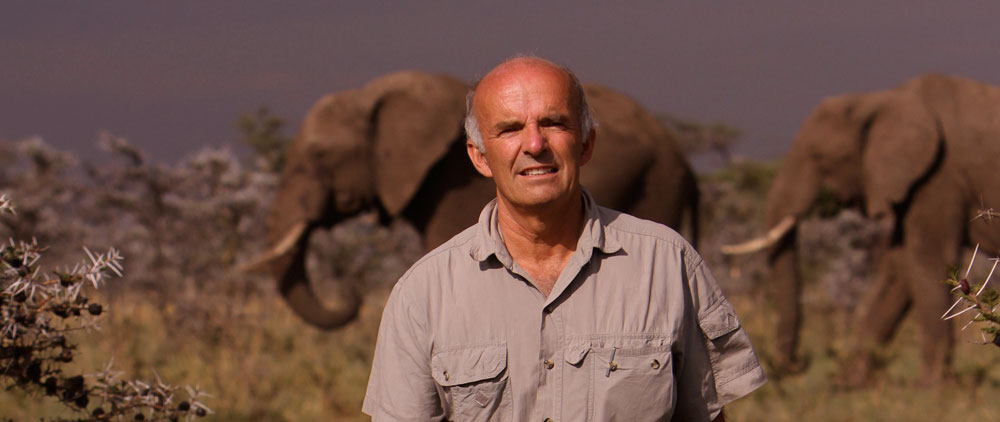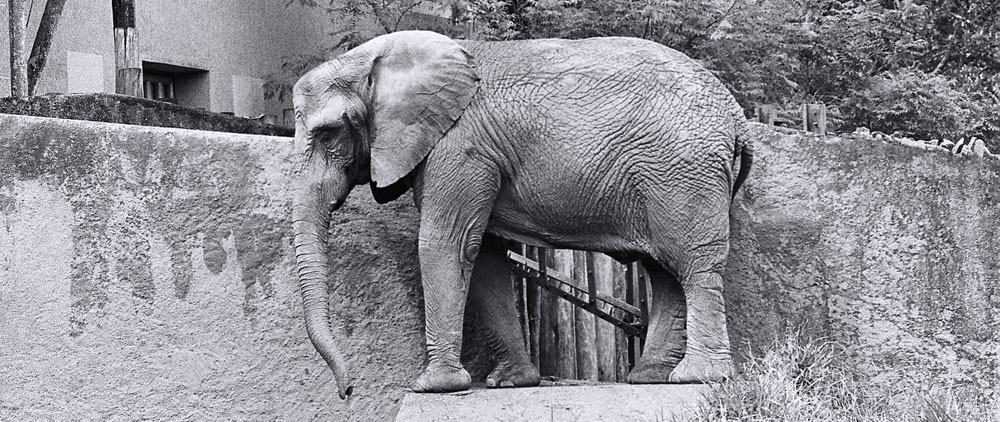social learning
-
Elephants learn from others
The cohesive structure of the family serves as a defense against predators as well as providing a social environment in which young elephants can mature and learn. Young elephants learn normal behavior in a social context, and learning from others, or social learning, plays a crucial role in their development.
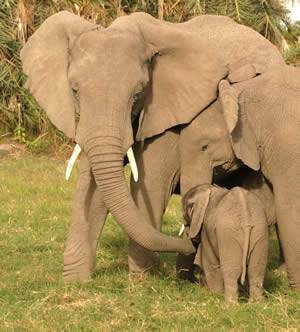 Calves follow their mothers' responses to learn who are their relatives and friends, and who represent potential threats. They rely on their social companions to learn appropriate behavioral responses to others. Calves gradually acquire foraging knowledge by sampling what the adults around them are eating, and they practice their mothering skills by associating with and following the behavior of mothers of newborn calves.
Calves follow their mothers' responses to learn who are their relatives and friends, and who represent potential threats. They rely on their social companions to learn appropriate behavioral responses to others. Calves gradually acquire foraging knowledge by sampling what the adults around them are eating, and they practice their mothering skills by associating with and following the behavior of mothers of newborn calves.In Tsavo East National Park, Kenya, where orphan elephants from The David Sheldrick Wildlife Trust were slowly released to the wild, contacts with both humans and older elephants provided information to translocated individuals about the new foods in the area, where and when to forage, and how to avoid dangers. These examples of young elephants emulating the behavior of older individuals and becoming more proficient at tool use and foraging techniques with increasing age suggest that social learning across extended periods of time is important in the


